Directors and Officers Insurance
Get ₹25 Lakh Cover,
Starting At ₹4,000*/year
Quotes in seconds. Coverage in minutes.
Trusted by


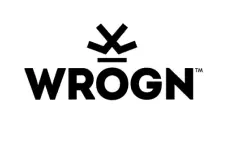
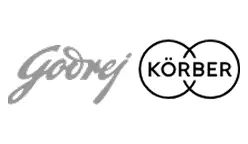
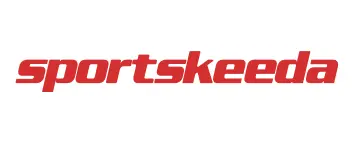


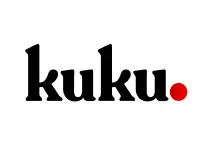
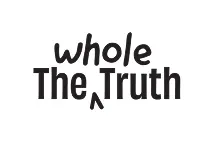











Policies Sold
on Google
Total Sum Insured
Directors and Officers Insurance
Get ₹25 Lakh Cover,
Starting At ₹4,000*/year
Get Quotes in a Few Steps
Policy Provided by



Get ₹25 Lakh Cover,
Starting At ₹4,000*/year
Directors and Officers Insurance
Protects executives when business decisions lead to lawsuits
WhyChoose BimaKavach?

Speed
Quotes in seconds, coverage in minutes!
Service
Dedicated support, quick replies!
Savings
Best prices, maximum savings!
Understand
Your Insurance
Before Buying
Directors and Officers Insurance Made Easy
Click on any topic to see the answer.
To share a topic, click the link icon next to it.
Understand
Your Insurance
Before Buying
Directors and Officers Insurance (D&O Insurance) policies offer liability coverage for company managers to protect them from claims that may arise from decisions and actions taken as part of their duties. It covers the legal costs and any settlement amounts that would normally be paid personally by the directors or officers
See More...Directors:
Board members who make high-level decisions, set company policies, and oversee governance.
Officers:
Senior executives, including the Chief Executive Officer (CEO), Chief Financial Officer (CFO), Chief Operating Officer (COO), and other key management personnel, responsible for daily company operations.
Employees:
Key employees or managers involved in decision-making or holding significant responsibilities. This includes:
- Vice Presidents
- General Managers
- Senior Managers
- Department Heads
Former/Retired Directors and Officers:
Individuals who previously held positions as directors or officers and may still be liable for actions taken during their tenure.
Future Directors and Officers:
New directors and officers joining the company are typically covered under the policy.
Advisors:
Outside consultants, legal advisors, or other external individuals providing guidance to the board or officers.
The Company Itself:
Some policies cover the company in cases of shareholder derivative actions, securities-related claims, or other legal disputes where the company is involved.
Subsidiaries:
If the company owns subsidiaries, Directors and Officers Insurance may cover directors and officers of these subsidiaries.
Trustees:
Individuals serving as trustees for employee benefit plans, pension funds, or similar entities may be covered under some D&O policies.
Legal Heirs:
In the event of a director’s or officer’s death, their legal heirs may be covered for actions taken during their tenure.
Employees
Employees may take legal action for wrongful termination, discrimination, or violations of employment rights.
Customers
If customers feel misled or wronged by a product or service, they may sue directors and officers for false advertising or breach of contract.
Competitors
Competitors may take legal action if they believe a director or officer has engaged in unfair competition, violated intellectual property rights, or disclosed confidential business information.
Regulators
Regulatory bodies may pursue legal action if directors and officers are found to have violated industry laws, regulations, or compliance requirements.
Shareholders
Shareholders may file lawsuits if they believe the actions or decisions of directors and officers have caused a loss in the company’s value or breached fiduciary duties.
Investors
Investors can take legal action if they believe directors and officers have acted negligently, misrepresented the company's financial position, or caused harm to their investment.
Cost to Investigate Matter/Allegation
Covers the expenses incurred to investigate any allegations made against directors or officers, ensuring a thorough and fair review of the situation.
Cost to Defend Against Pollution Claims
Pays for the legal and regulatory costs involved in defending directors and officers against pollution-related claims, reducing financial impact in environmental lawsuits.
Failure or Negligence to Supervise
Protects against accusations of failing to properly supervise employees or operations, covering legal costs and settlements when directors or officers are accused of neglecting their duties.
Lawyer’s Fees to Defend
Covers the legal fees needed to hire defence lawyers, ensuring directors and officers have the resources to effectively challenge claims made against them.
Civil Fines & Penalties
Helps cover civil fines and penalties that directors and officers may face due to legal or regulatory violations, supporting them through challenging legal situations.
Cost of Informing Stakeholders About Incident
Covers the costs of informing stakeholders, such as investors, employees, and customers, about legal matters or incidents, ensuring transparency and maintaining trust in the company’s leadership.
Cost of Responding to a Kidnapping Incident
Covers the costs of responding to a kidnapping incident involving a director or officer, including ransom demands, security measures, and emergency response efforts.
Public Relations Cost to Manage Reputation
Pays for the costs of hiring public relations firms to manage the company’s or director’s reputation during or after a legal issue, ensuring the company’s image stays intact.
Employer-Employee Dispute Cost
Covers legal and settlement costs arising from disputes between directors or officers and employees, helping resolve employment-related issues without placing financial strain on leadership.
Cost of Bail & Bond for Lawsuit
Covers the cost of posting bail or bond if a director or officer is required to secure their release during a lawsuit or legal proceedings.
Fiduciary Liability Insurance
Covers claims related to breaches of fiduciary duties concerning employee benefit plans, such as pension or retirement plans.
Entity Coverage
Extends coverage to the company itself in cases of securities class actions or shareholder derivative lawsuits.
Cyber Liability Add-On
Provides coverage for directors and officers in the event of cyber incidents, such as data breaches or failure to comply with data protection laws.
Criminal Defence Costs
Covers legal fees for defending against criminal charges, such as fraud or insider trading.
Crisis Management Coverage
Provides assistance with managing reputational damage and public relations costs related to a legal action or crisis situation.
Criminal Activities
D&O Insurance does not cover legal actions or claims arising from criminal activities, fraudulent conduct, or intentional wrongdoing by directors or officers. If a director or officer is found guilty of illegal actions, they will not be protected by this insurance.
Money Laundering
Claims related to involvement in money laundering activities are not covered under D&O Insurance. This includes legal expenses from investigations or prosecutions of money laundering activities by company leadership.
Financial Insolvency
D&O Insurance does not cover claims resulting from the company’s financial insolvency or bankruptcy. Directors and officers are responsible for managing the company’s financial stability, but the policy does not protect them in the event of company collapse or liquidation.
Property Damage
Damage to physical property is not covered by D&O Insurance. These claims fall under the coverage of Commercial General Liability (CGL) Insurance, which is better suited for property damage issues.
Bodily Injury
D&O Insurance does not cover bodily injury claims, whether involving directors, officers, employees, or third parties. Claims related to bodily harm or injury are handled under CGL Insurance, not D&O Insurance.
Prior and Pending Litigations
D&O Insurance does not cover claims or lawsuits that were already in progress or known to the directors or officers when the policy was purchased. If a legal issue existed before the policy’s start date, it will not be covered.
| Side A | Side B | Side C |
|---|---|---|
| Protects personal liability when the company can’t indemnify. | Reimburses the company for indemnifying its directors/officers. | Covers the company for securities-related legal costs. |
What It Covers
Side A
Protects personal liability when the company can’t indemnify.
Side B
Reimburses the company for indemnifying its directors/officers.
Side C
Covers the company for securities-related legal costs.
Who Is Covered?
Side A
Directors and officers personally.
Side B
The company (reimbursed).
Side C
The company (and sometimes directors/officers).
When Is It Used?
Side A
When the company cannot or will not cover the director’s or officer’s legal costs.
Side B
When the company covers the director’s or officer’s legal expenses, and the insurance reimburses the company.
Side C
When the company is sued by shareholders or other stakeholders related to securities issues.
Directors and Officers Insurance is divided into three parts: Side A, Side B, and Side C. Each side offers protection in different situations, ensuring that both individual directors and officers, as well as the company, are fully protected from legal and financial risks.
Let us look at the case of the Chief Executive Officer (CEO) of a tech company who was sued for wrongful termination to explain the three sides:
Side A:
Protection for the CEO’s Personal Assets
If the company cannot cover the legal costs or refuses to help, Side A provides protection. This side of Directors and Officers Insurance covers the personal assets of the CEO and other directors or officers. It pays for legal defence fees, settlement costs, and damages the CEO may need to pay personally, ensuring that their savings or personal property are not at risk.
Side A is vital when the company is unable to indemnify its leadership, whether due to financial difficulties or company policies. It allows directors and officers to perform their roles without fearing the financial consequences of a lawsuit.
Side B:
Reimbursement to the Company for Indemnification
In the same case, suppose the company decides to indemnify the CEO and cover her legal costs, including lawyer fees and settlement payments. Side B comes into play here. It reimburses the company for the costs of indemnifying its directors and officers. So, even though the company pays for the CEO’s defence, Side B ensures it gets reimbursed for those costs, protecting the company’s finances.
Side B helps the company support its leadership while managing the financial burden.
Side C:
Protection for the Company
Finally, Side C protects the company itself. If the company faces a lawsuit from shareholders claiming mismanagement or poor financial decisions that affected the stock price, Side C covers the company’s legal expenses. This side protects the company from direct legal actions related to securities, such as shareholder lawsuits or claims involving financial performance.
While Side A and Side B focus on protecting individuals, Side C focuses on safeguarding the company’s financial interests. It covers legal costs, damages, and settlements related to securities claims or any legal issue that could harm the company’s finances or reputation.
Tech & Software
Tech companies face high risks from data breaches, intellectual property issues, and rapid innovation. A Directors and Officers Insurance Policy protects directors from personal liability in lawsuits related to these risks.
Finance & Banking
Directors in finance face lawsuits for financial mismanagement, insider trading, and fiduciary breaches. D&O Insurance shields them from personal financial loss due to these claims.
Healthcare
In healthcare, legal challenges such as patient care issues and regulatory compliance can lead to lawsuits against executives. D&O Insurance covers directors from personal liability in these situations.
Manufacturing
Directors in manufacturing can be sued over product liability, environmental violations, and worker safety issues. D&O Insurance protects their personal assets from these legal risks.
Retail
Retail executives face lawsuits over consumer protection, data privacy, and supply chain disputes. D&O Insurance covers them from personal financial loss in these legal matters.
Energy & Utilities
Directors in energy face legal risks related to environmental regulations, safety violations, and non-compliance. D&O Insurance safeguards their personal finances if they face legal action in these areas.
Directors and officers may face lawsuits from different stakeholders, each for various reasons. Here is a breakdown of common causes for lawsuits from each group:
Competitors
Antitrust Violations
Competitors may sue if they believe the company is engaging in unfair business practices, such as price-fixing or monopolistic behaviour. These claims can lead to serious consequences, including fines and a damaged reputation.
Copyright and Patent Infringement
Directors and officers may be sued if the company uses someone else’s intellectual property without permission. This includes patents, trademarks, and copyrights. It is important to ensure all intellectual property used is legally owned or licensed.
Business Interference
Competitors might take legal action if they believe the company has intentionally harmed their business relationships, suppliers, or contracts. This can happen if the company attempts to steal clients, suppliers, or interfere with operations.
Dishonesty or Fraud
If a company engages in dishonest or fraudulent behaviour, such as misrepresenting products or services, competitors may sue. Directors and officers must act with integrity in all business dealings to avoid such claims.
Product and Company Defamation
A company’s leadership may face lawsuits for making false statements about a competitor’s products or business. This can damage the competitor’s reputation and result in expensive legal costs.
Deceptive Trade Practices
If the company is accused of misrepresenting products or services, competitors may file lawsuits. Directors and officers need to ensure their marketing practices are honest and transparent to avoid these claims.
Customers and Clients
Lender Liability
Directors and officers can be sued if the company’s loans or financial decisions harm customers, especially if the terms are unfair. Customers may feel misled and take legal action.
Product or Service-Related Claims
If a product or service does not meet safety standards or causes harm, customers can sue. Directors and officers are responsible for ensuring all offerings are safe and comply with regulations.
Deceptive Trade Practices
If customers feel misled by advertising or product claims, they can sue. Directors and officers must ensure the company’s marketing and sales practices are truthful and meet legal standards.
Government and Regulators
Dishonesty or Fraud
Regulatory bodies may take legal action if they believe the company has engaged in financial misreporting or misleading statements. This includes hiding financial losses or failing to follow industry laws.
Securities Violations
Directors and officers can be held responsible if they break securities laws, such as insider trading or failing to disclose important information to investors. Full compliance with securities regulations is essential to avoid legal exposure.
Shareholders
Inadequate or Inaccurate Disclosures
Shareholders may sue if they believe directors have failed to disclose important information about the company’s finances or risks. Transparency is critical to avoiding such claims.
Financial Reporting Issues
If financial statements are misleading, shareholders can sue directors for negligence. Directors must ensure statements are accurate and reflect the company’s true financial position.
Conflict of Interest
Shareholders may sue if directors make decisions that benefit themselves over the company. Directors must avoid any situation where personal interests could influence company decisions.
Gross Mismanagement
Shareholders may take legal action if they believe the leadership has mismanaged the company, resulting in financial harm. Directors must always act in the company’s best interests.
Financial Performance and Bankruptcy
If the company fails financially or files for bankruptcy due to poor decisions, directors may be held liable by shareholders. Long-term consequences of leadership decisions must be carefully considered.
Investment or Loan Decisions
Shareholders may hold directors responsible if poor investment or loan choices harm the company. Directors must exercise due diligence when making financial decisions.
Employees
Breach of Employment Contract
Employees may sue if the company violates their employment agreement, such as not paying agreed compensation or changing job terms without notice. Directors should ensure contract compliance.
Discrimination
Directors and officers may face lawsuits if employees experience discrimination based on race, gender, religion, or other protected characteristics. Promoting equality and fairness is essential.
Sexual Harassment
Employees may sue if they experience harassment and leadership fails to take appropriate action. Directors must prevent and respond to any such claims to ensure employee safety.
Unfair Dismissal
Employees may file wrongful termination claims if they feel they were dismissed without valid cause. Directors must ensure all dismissals follow due process and legal standards.
Invasion of Privacy
Employees may take legal action if their privacy is violated, such as through unauthorised surveillance. Directors must respect privacy rights and comply with legal monitoring practices.
Failure to Provide a Safe Working Environment
If directors and officers do not maintain a healthy and safe workplace, they can be held liable. This includes addressing physical hazards, harassment, or any unsafe conditions.
Notify Us
As soon as the incident happens, contact us within 2 days. Share the details of what happened and any key documents, such as the legal notice, FIR, or incident report. We will ensure everything is in place to start the process.
We Will Help You with Lawyer Approval
Before hiring a lawyer, we will help you get approval from your insurer. We will guide you through the process and ensure everything aligns with your policy. Do not worry, we are here to assist every step of the way.
We Will Guide You on Lawyer Fees
We will help you get the lawyer’s fees approved by the insurer. You can explore different options, and we will ensure the fees match what is allowed in your policy.
We Will Handle the Evaluation
We will help submit the necessary documents and ensure the insurer has everything required to evaluate the claim. If anything extra is needed, we will manage it for you.
We Will Keep You Updated on the Decision
Once the insurer has reviewed the claim, we will keep you informed about the decision. If there is any delay due to missing information or complexity, we will help gather the necessary updates and keep the process moving forward.
CEO Sued for Mismanagement
In 2020, the Chief Executive Officer (CEO) of a small tech company made a high-risk investment of Rs. 50 lakhs in a new product line. Unfortunately, the project failed, causing the company a loss of Rs. 1 crore. Shareholders filed a lawsuit, claiming that the CEO's poor decision-making led to the financial loss. The CEO filed a claim under their Directors and Officers (D&O) Insurance, which covered Rs. 20 lakhs in legal defence costs and a Rs. 10 lakh settlement, ensuring the CEO’s personal assets remained protected.
Directors Sued Over Environmental Violations
In 2021, a manufacturing company faced a lawsuit after chemicals leaked from their factory, causing environmental damage. The company was fined Rs. 30 lakhs by regulatory authorities. The directors were personally named in the lawsuit for failing to prevent the spill. The directors filed a claim under their D&O Insurance, which covered Rs. 15 lakhs in legal defence costs and a portion of the fines, helping protect their personal finances during the legal battle.
Board Members Accused of Conflict of Interest
In 2019, board members of a retail chain were accused of approving a deal that financially benefited them by Rs. 10 lakhs. Shareholders filed a lawsuit, claiming the board members breached their fiduciary duties. The board members filed a claim with their D&O Insurance provider, which covered Rs. 8 lakhs in legal defence fees, ensuring they could focus on resolving the issue without risking their personal financial security.
Real Review for Real Speed
Vishal Sharma
FounderAutopilot Design


Common Questions Answered
Common Questions Answered
Have questions or need to speak to an expert?
Directors and Officers (D&O) Liability Insurance is a type of insurance that protects the personal assets of individuals serving as directors or officers of a company or organisation. It covers financial losses resulting from lawsuits and alleged wrongful acts related to their managerial responsibilities.
The policy includes legal defence costs, settlements, and court judgments. D&O Insurance is an important safeguard for company leadership and is mandatory for the top 1,000 listed entities in India, as specified by the Securities and Exchange Board of India (SEBI).
Key aspects of D&O insurance include protection for the personal assets of directors and officers against lawsuits related to their actions in leadership roles. The policy covers claims arising from alleged wrongful acts such as breaches of duty, misstatements, or omissions.
It typically includes legal defence costs, even if the directors or officers are later found not liable. In addition, D&O insurance can cover financial losses such as settlements and court judgments that they may be required to pay.
Have questions or need to speak to an expert?
Learn More About
Directors and Officers Insurance
Ready To Buy
Business Insurance?
Join 4,000+ Indian businesses & protect your business today.